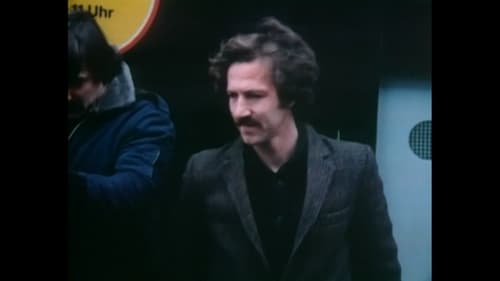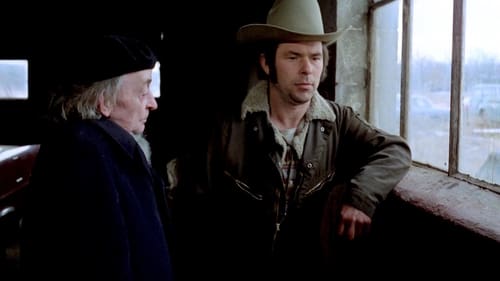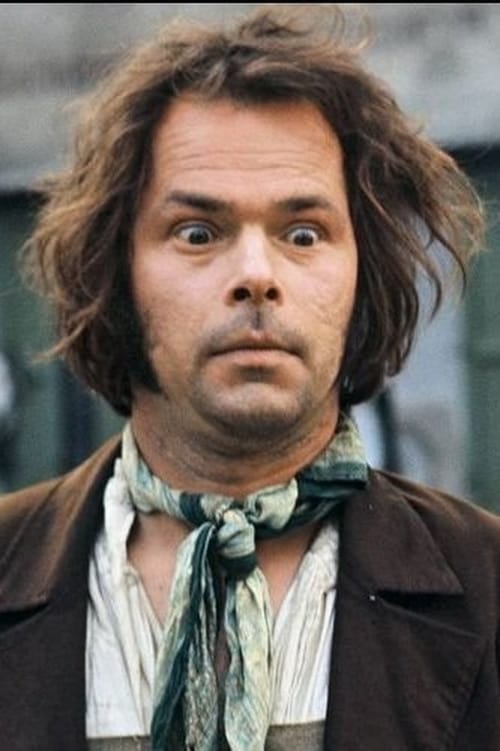Bruno S.
Nacimiento : 1932-06-02, Berlin, Germany
Muerte : 2010-08-11
Historia
Bruno Schleinstein (2 June 1932 – 11 August 2010), often credited as Bruno S., was a German film actor, artist, and musician. He is known internationally for his roles in two films directed by Werner Herzog, The Enigma of Kaspar Hauser (1974) and Stroszek (1976).

Himself
a film by Vincent Moon & Nick Dangerfield

Viktor's Grandfather
While hitchhiking from Sofia to Ruse, Kamen meets Avé, a 17-year-old runaway girl. With each ride they hitch, Avé invents new identities for them, and her compulsive lies get Kamen deeper and deeper into trouble. Reluctantly drawn into this adventure, Kamen begins to fall in love with the fleeting Avé.

Bruno S.
Larry is a misfit stranded in Berlin, the pilgrim capital of the lost and haunted. Whatever he does goes wrong. Yet he still can't help acting like a smartass in order to make him feel self-important about his desolate life. But Larry's life is on downward spiral… Pressurised by his girlfriend Lilly, who drives him crazy with her obsession about having a baby, threatened by Kokser, a man to whom he owns money, and trying to dodge an ominous preacher called Klaus, who takes the words of Bible as literal truth, Larry seeks help from Bruno, a homeless drifter, crossing the border between dreams and reality...

Self
Documentary about Bruno Schleinstein (Bruno S.) and his art, in which he experiments with a newly acquired laptop and scanner

Self
A portrait of Bruno S., who became famous as an actor in Werner Herzog's films The Enigma of Kaspar Hauser and Stroszek and was forgotten all too quickly.

Self
Bruno S., musician and actor in several films by Werner Herzog (Kaspar Hauser, Stroszek), leads us round along the former front lines in Berlin. A film about the division of a city.

Music
Bruno S., musician and actor in several films by Werner Herzog (Kaspar Hauser, Stroszek), leads us round along the former front lines in Berlin. A film about the division of a city.

Stroszek
Documental biográfico sobre Werner Herzog, donde se explora la conexión entre el director y sus obras.

Bruno Stroszek
Cuando Bruno Stroszek sale de prisión, le advierten que debe dejar de beber. Con pocas habilidades y menos expectativas, sobrevive como músico callejero. Precisamente en la calle conoce a Eva, una prostituta, con la que entabla amistad. Después de ser golpeados por el chulo de ella, deciden unirse a Scheitz, un excéntrico vecino de Bruno, que ha decidido emigrar a Wisconsin, en los Estados Unidos.

Kaspar Hauser
Alemania, principios del siglo XIX. Kaspar es un enigmático muchacho que ha pasado toda la vida encerrado y aislado en una cueva: no conoce, pues, el lenguaje ni tiene capacidad para relacionarse con los demás. Cuando, en 1828, alguien lo abandona en Nuremberg con una carta para las autoridades locales, se convierte primero en una especie de atracción de feria y después en una curiosidad científica y social.

Lutz Eisholz’s first feature film was produced at West Berlin’s German Film and TV Academy. In an experimental documentary he portrays the working class outcast Bruno S., who prowls the city as a street musician, performing his own songs. The film unfolds Bruno’s story: abandoned by his mother as a child, he was maltreated in correctional institutions in Nazi Germany. On release after WWII he found work but started performing at the same time as a self-taught musician and poet. Although incapable of “normal” human bonding, he was still able to rejoice in life. When Werner Herzog saw this film he recognized Bruno’s potential and hired him to play starring roles in The Enigma of Kaspar Hauser (1974), Heart of Glass (1976) and Stroszek (1977).






